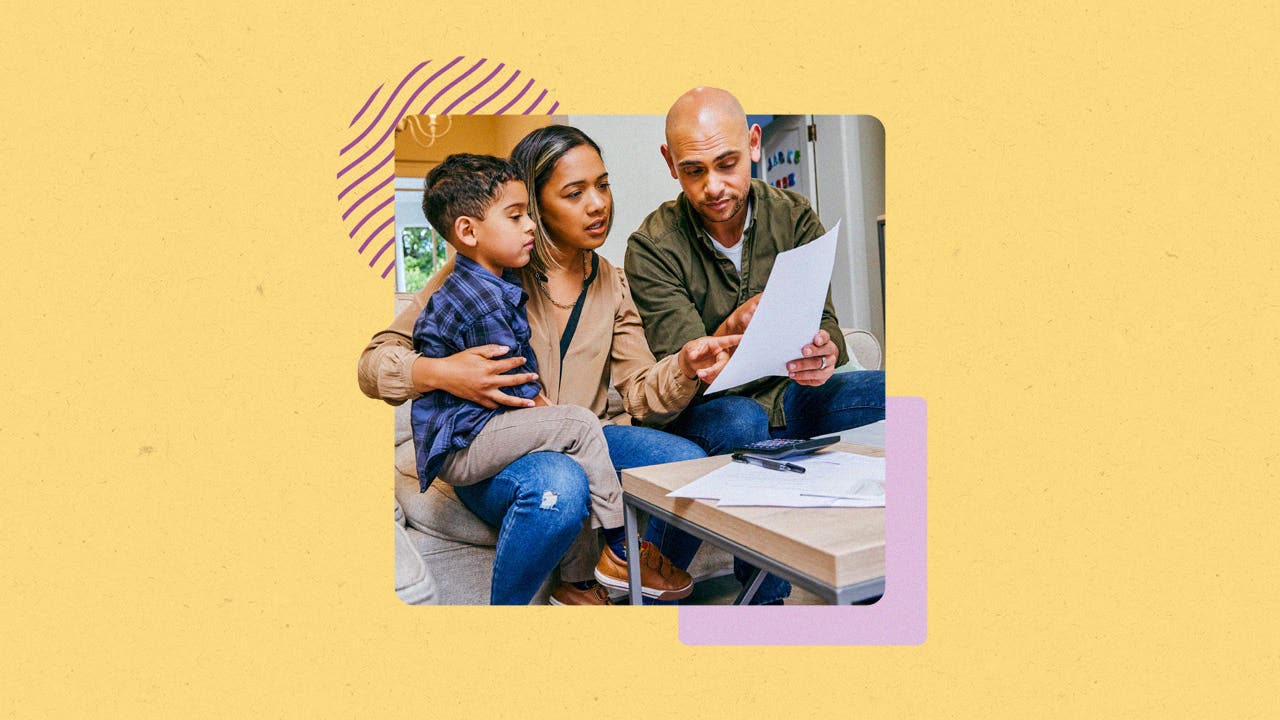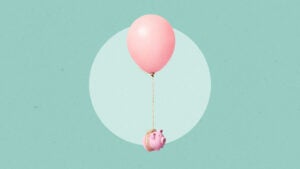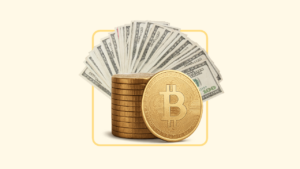Many Americans bringing financial anxiety into the new year

Consumers have reason to cheer on the financial front. The U.S. economy has been dodging a recession for a couple of years, and a Bankrate survey finds that economists expect that the economy — and employment — will hold up better than expected in 2024.
For one, it looks like the Federal Reserve has been successful in its fight against inflation so far, bringing it down to 3.4 percent for December 2023 from a pandemic-influenced peak of 9.1 percent in June 2022. And consumer spending, which accounts for two-thirds of economic output, is still going strong, with retail sales growing 0.6 percent over the month in December (up 4.8 percent over the year).
While all this paints a rosier picture of the economy, it seems consumers are not exactly celebrating yet. For instance, 63 percent of Americans say they don’t see their financial situation improving in 2024. And about 80 percent of U.S households didn’t add to their emergency savings in 2023, a Bankrate survey finds.
Not only that, consumers say their financial situation contributes to mental health fallouts, with 52 percent reporting in a 2023 survey that money has negatively impacted their mental health. That’s up significantly from the 42 percent who reported feeling the same in the previous year.
Personal finances concerns could even be a factor that influences the outcome of the 2024 presidential election.
- 49 percent of credit card holders fall into the “debt revolver” category, carrying debt from month to month — up from 39 percent in 2021.
- More than half of Americans (60 percent) say they feel behind where they should be when it comes to emergency savings.
- Nearly two-thirds of Americans (63 percent) say they don’t expect their financial situation will improve in 2024.
- More than half of Americans (52 percent) say that money had a negative impact on their mental health in 2023, compared to 42 percent a year ago.
Why are Americans so anxious about their finances?
In a sign of improving consumer confidence, the latest University of Michigan consumer sentiment survey revealed a 13 percent jump in January, touching its highest level since July 2021. This comes about as consumers feel more optimistic that inflation has been tamed and more hopeful that their incomes will rise.
Even so, not all consumer experiences are the same, and there are many Americans who aren’t doing as well financially as others. While pandemic relief helped many consumers shore up their finances in 2020 and 2021, that financial stability deteriorated in 2022, according to a December 2023 report from the Consumer Finance Protection Bureau. The CFPB reports that consumers are still somewhat better off than they were in pre-pandemic 2019, though the trend is now negative.
For one, more families had trouble paying their bills in 2023 than in 2022. And more consumers reported variable monthly income than in 2019 due to such factors as self-employment and shifting work hours.
Financial preparedness has also declined, with 39.7 percent of families unable to cover expenses for a month if they lost their main source of income, compared to 38.1 percent in 2019. Renters and those with student loans are especially vulnerable to income disruptions, reporting trouble with paying their bills (even before student loan repayments resumed in October 2023), the CFPB finds. Black and Hispanic consumers are also less financially secure than other ethnic groups.
It seems consumers increasingly are turning to their credit cards to bridge financial gaps, even though card interest rates surpass 20 percent, with the Federal Reserve Bank of New York reporting that outstanding credit card balances increased by 4.7 percent in the third quarter of 2023 to $1.08 trillion.
Student loan debt also rose by $30 billion to $1.6 trillion in the third quarter. The resumption of student loan payments last October has been another source of stress for millions of Americans.
And even though inflation is tamer now compared to the last two years, the rise in the prices of goods and services is still impacting consumers’ finances. For one, a Bankrate survey from last year finds that 57 percent of those who hadn’t buttressed their emergency savings or had no such savings put away pointed to inflation as the culprit preventing them from saving more. And 38 percent say they haven’t saved more due to too many expenses.
The impact of financial anxiety
A Bankrate survey found that, of those who say money negatively impacts their financial wellness, 82 percent said that fallouts for them, such as stress or depression, are linked to economic factors like inflation, rising costs and high interest rates, with 29 percent pointing to the lack of a stable job or job security as a cause.
Inaccuracies in credit reporting have also caused considerable anxiety, given the impact they can have on credit scores. And a lower credit score means consumers will pay a higher interest rate. Consumer complaints to the CFPB about credit reporting matters leaped 96 percent from 2021 through 2022, according to an analysis by the U.S. Public Interest Research Group. Complaints against the three major credit reporting bureaus (Equifax, TransUnion and Experian) made up almost 70 percent of complaints received in 2022.
At least one consumer has vented about financial stress in a complaint filed last November with the CFPB, noting that the credit reporting bureau TransUnion hadn’t resolved their complaint about “fraudulent entries” on their credit report, even after they followed up. This situation is causing the consumer “significant stress and anxiety.”
Stress and anxiety over debt can significantly affect your mental health, but it can also take a toll on your relationships and ability to make good decisions. For instance, one study found that people who were more financially secure were better able to think long-term and plan for the future.
How to shore up your finances amid uncertainty
It’s understandable to feel overwhelmed by financial strain and worry, but there are ways to improve your finances and make inroads into paying down your debt.
Build a personal budget
Making a budget and tracking your expenses can help you make ends meet. The first step is to understand how much money you’re bringing in, and then tracking your spending to see where it goes each month. You’ll find many different ways to budget your finances. But to put your money to its best use, consider zero-based budgeting, which earmarks each dollar toward a specific expense. If you overspend in one area, such as eating out, you can cut back on other spending to stay on track. Tools like a home budget calculator or a top budgeting app may be helpful too.
Reach out for help in managing your debt
If you aren’t confident that you can manage your debt by yourself, a nonprofit credit counselor may be able to help you create a plan or strategy to pay off your debt. A counselor can even negotiate a debt management plan with your creditors on your behalf that can provide some debt relief. A financial counselor could also help you better manage the stress your debt creates.
Explore options for paying down high-interest debt
If you owe balances across multiple credit cards, you may be able to consolidate your debt into one monthly payment — ideally with a lower interest rate. A balance transfer credit card is among the best ways to pay down your debt. These cards allow you to transfer old debt to a new card offering 0 percent interest for up to 15 months or longer. If you’d rather not take on a new card, look into whether you can combine high-interest debt into a loan offering a lower interest rate.
If student loan debt is the cause of your financial stress, see if you qualify for a debt forgiveness program. These programs tend to depend on your occupation and require a time commitment before you can apply to have your debt discharged.
Try to increase your income
And on a note of cheer, about two-thirds of working Americans (64 percent) say they got a pay boost in the 12-month period following October 2022. This includes 38 percent who got a pay raise, 16 percent who got a job that paid more and 10 percent who benefited from both a raise and a new job.
Beyond pay raises, a more immediate way to bring in extra income is by taking on a side gig, such as dog walking or becoming a rideshare or delivery driver. If you’re able to negotiate a higher salary, look for a new role, or boost your income through a side hustle, you’ll be in a better position to alleviate financial stress.
Why we ask for feedback Your feedback helps us improve our content and services. It takes less than a minute to complete.
Your responses are anonymous and will only be used for improving our website.






